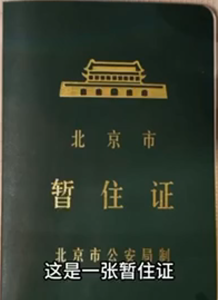Sun Zhigang’s Death: A Turning Point in China’s Legal Reforms
In 2003, police in Guangzhou detained Sun Zhigang for an ID check because he didn’t have his temporary residence permit. This oversight led to a 60-hour beating, resulting in his tragic death. Shockingly, this incident not only deeply saddened the nation but also spurred significant legal reforms.
The Fading Importance of Temporary Residence Permits

temporary residence permit
While once essential, temporary residence permits are now unfamiliar to many Chinese. As a result, Sun Zhigang’s newness to Guangzhou and his lack of a permit proved to be fatal mistakes.
Sun Zhigang’s Tragic Experience

Sun Zhigang, a recent graphic design graduate from Wuhan University of Science and Technology, had just started working in Guangzhou. On his way to an internet cafe, police stopped him for lacking a temporary residence permit. Despite his friends’ attempts to bail him out, a disagreement with the police led to his detention at Guangzhou’s custody and repatriation center.
Harsh Conditions at the Detention Center
Inside the center, Sun Zhigang suffered continuous beatings, causing severe injuries. Both caregivers and detainees were involved, and their neglect contributed significantly to his untimely death.
The Truth Revealed and Media Response
Initial reports cited cerebral hemorrhage and sudden cardiac death as the cause of Sun Zhigang’s death. However, further forensic examinations revealed that he died from blunt force trauma to the back. In response, reporters Chen Feng and Wang Lei from Southern Metropolis Daily conducted an in-depth investigation. They published “The Death of Detainee Sun Zhigang” on April 25th, shocking the entire nation.
Legal Progress and Reforms
This incident caught the attention of both the central government and Guangdong province. The Guangzhou Intermediate People’s Court tried and sentenced Qiao Yanqin and Li Haiying to death on June 9, 2003. Others involved in the incident received varying prison sentences. Most importantly, Sun Zhigang’s death led to the abolition of the 1982 custody and repatriation measures by the State Council just 11 days after the trial, marking a significant milestone in China’s legal reform process.
Conclusion
Sun Zhigang’s death acted as a catalyst for China’s legal reforms, prompting improvements in urban management and facilitating population mobility. As such, this incident not only highlighted the need for change but also foreshadowed upcoming reforms to China’s household registration system.
